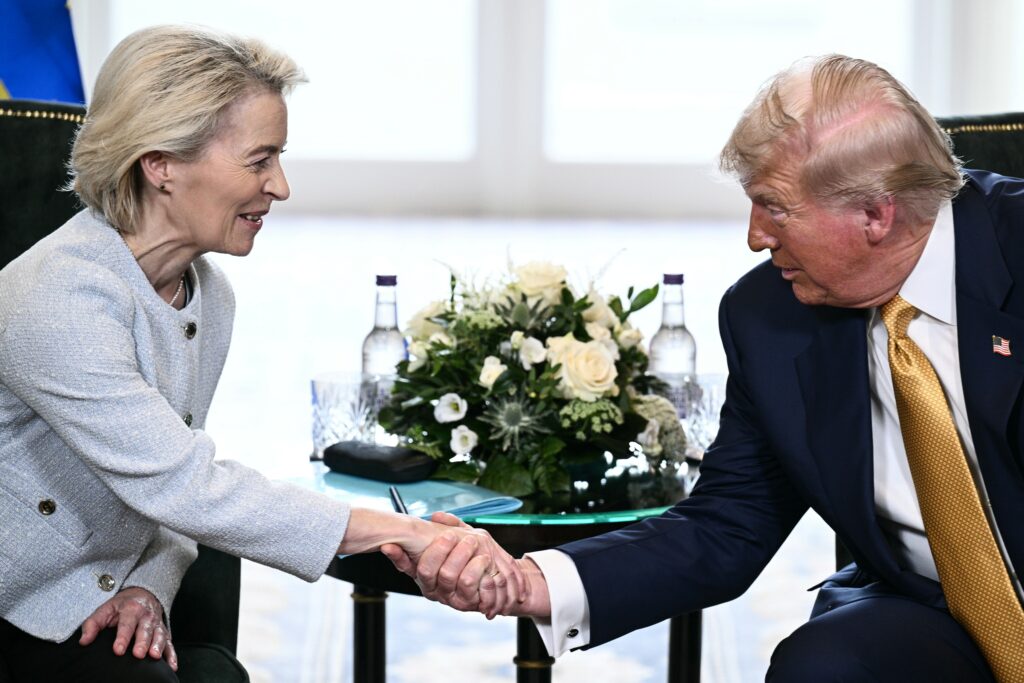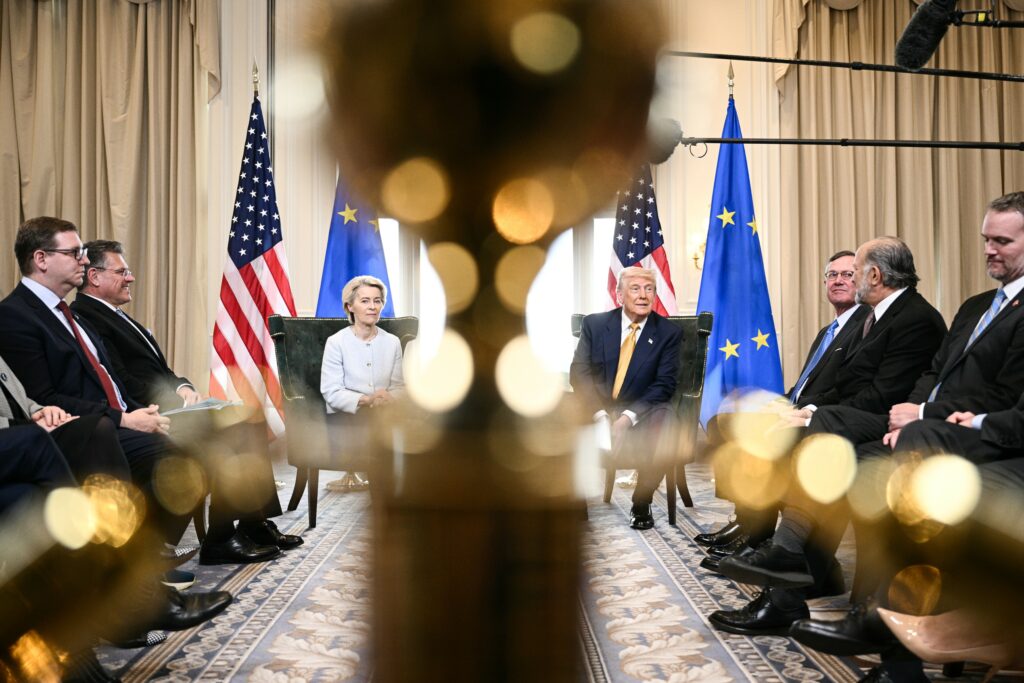EU, US strike ‘biggest-ever’ trade deal
The United States and European Union on Sunday clinched what President Donald Trump described as the “biggest-ever” deal to resolve a transatlantic tariff stand-off that threatened to explode into a full-blown trade war.Trump emerged from a high-stakes meeting with European Commission President Ursula von der Leyen at his golf resort in Scotland to announce that a baseline tariff of 15 percent would be levied on EU exports to the US.The deal, which the leaders struck in around an hour, came as the clock ticked down on an August 1 deadline to avoid an across-the-board US levy of 30 percent on European goods.”We’ve reached a deal. It’s a good deal for everybody. This is probably the biggest deal ever reached in any capacity,” said Trump.Trump said the 15-percent tariff would apply across the board, including for Europe’s crucial automobile sector, pharmaceuticals and semiconductors.As part of the deal, Trump said the 27-nation EU bloc had agreed to purchase “$750 billion worth of energy” from the United States, as well as make $600 billion in additional investments.Von der Leyen said the “significant” purchases of US liquefied natural gas, oil and nuclear fuels would come over three years, as part of the bloc’s bid to diversify away from Russian sources.Negotiating on behalf of the EU’s 27 countries, von der Leyen had been pushing hard to salvage a trading relationship worth an annual $1.9 trillion in goods and services.”It’s a good deal,” the EU chief told reporters.”It will bring stability. It will bring predictability. That’s very important for our businesses on both sides of the Atlantic,” she said.She said bilateral tariff exemptions had been agreed on a number of “strategic products,” notably aircraft, certain chemicals, some agricultural products and critical raw materials.Von der Leyen said the EU still hoped to secure further so-called “zero-for-zero” agreements, notably for alcohol, which she hoped to be “sorted out” in coming days.Trump also said EU countries — which recently pledged to ramp up their defence spending within NATO — would be purchasing “hundreds of billions of dollars worth of military equipment.”- ‘Best we could get’ -The EU has been hit by multiple waves of tariffs since Trump reclaimed the White House.It is currently subject to a 25-percent levy on cars, 50 percent on steel and aluminium, and an across-the-board tariff of 10 percent, which Washington threatened to hike to 30 percent in a no-deal scenario.The bloc had been pushing hard for tariff carve-outs for critical industries from aircraft to spirits, and its auto industry, crucial for France and Germany, is already reeling from the levies imposed so far.”Fifteen percent is not to be underestimated, but it is the best we could get,” acknowledged von der Leyen.Any deal will need to be approved by EU member states — whose ambassadors, on a visit to Greenland, were updated by the commission Sunday morning. They were set to meet again after the deal struck in Scotland.German Chancellor Friedrich Merz rapidly hailed the deal, saying it avoided “needless escalation in transatlantic trade relations”.But German exporters were less enthusiastic. The powerful BDI federation of industrial groups said the accord would have “considerable negative repercussions” while the country’s VCI chemical trade association said the accord left rates “too high”. The EU had pushed for a compromise on steel that could allow a certain quota into the United States before tariffs would apply.Trump appeared to rule that out, saying steel was “staying the way it is”, but the EU chief insisted later that “tariffs will be cut and a quota system will be put in place” for steel.- ‘The big one’ -While 15 percent is much higher than pre-existing US tariffs on European goods, which average around 4.8 percent, it mirrors the status quo, with companies currently facing an additional flat rate of 10 percent.Had the talks failed, EU states had greenlit counter tariffs on $109 billion (93 billion euros) of US goods including aircraft and cars to take effect in stages from August 7. Trump has embarked on a campaign to reshape US trade with the world, and has vowed to hit dozens of countries with punitive tariffs if they do not reach a pact with Washington by August 1.Asked what the next deal would be, Trump replied: “This was the big one. This is the biggest of them all.”burs-gv/jj






